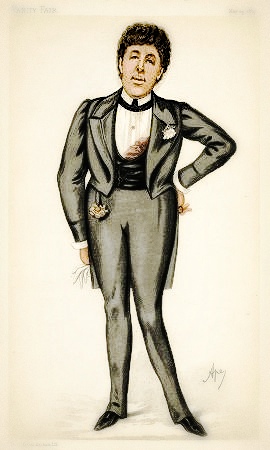Why go grubbing in muck heaps?
The world is fair,
and the proportion of healthy-minded men
and honest women to those that are foul,
fallen and unnatural, is great.
Mr Oscar Wilde has again
been writing stuff that were better unwritten;
and while The Picture of Dorian Gray,
which he contributes to Lippincott’s is
ingenious, interesting, full of cleverness,
and plainly the work of a man of letters,
it is false art –
for its interest is medico-legal;
it is false to human nature –
for its hero is a devil;
it is false to morality –
for it is not made sufficiently clear
that the writer does not prefer
a course of unnatural iniquity
to a life of cleanliness,
health and sanity.
The world is fair,
and the proportion of healthy-minded men
and honest women to those that are foul,
fallen and unnatural, is great.
Mr Oscar Wilde has again
been writing stuff that were better unwritten;
and while The Picture of Dorian Gray,
which he contributes to Lippincott’s is
ingenious, interesting, full of cleverness,
and plainly the work of a man of letters,
it is false art –
for its interest is medico-legal;
it is false to human nature –
for its hero is a devil;
it is false to morality –
for it is not made sufficiently clear
that the writer does not prefer
a course of unnatural iniquity
to a life of cleanliness,
health and sanity.
Charles Whibley’s review of The Portrait of Dorian Gray in The Scots Observer (5th July 1890)
Wilde’s response:
“Your reviewer suggests
that I do not make it sufficiently clear
whether I prefer virtue to wickedness
or wickedness to virtue.
An artist, sir,
has no ethical sympathies at all.
Virtue and wickedness
are to him simply
what the colours on his palette are to the painter.
They are no more,
and they are no less.
He sees that by their means
a certain artistic effect can be produced
and he produces it.
Iago may be morally horrible
and Imogen stainlessly pure.
Shakespeare, as Keats said,
had as much delight in creating the one
as he had in creating the other.”
Oscar Wilde, letter to the newspapers editor, William Ernest Henley (July 1890)


Action requires knegdelwo, and now I can act!